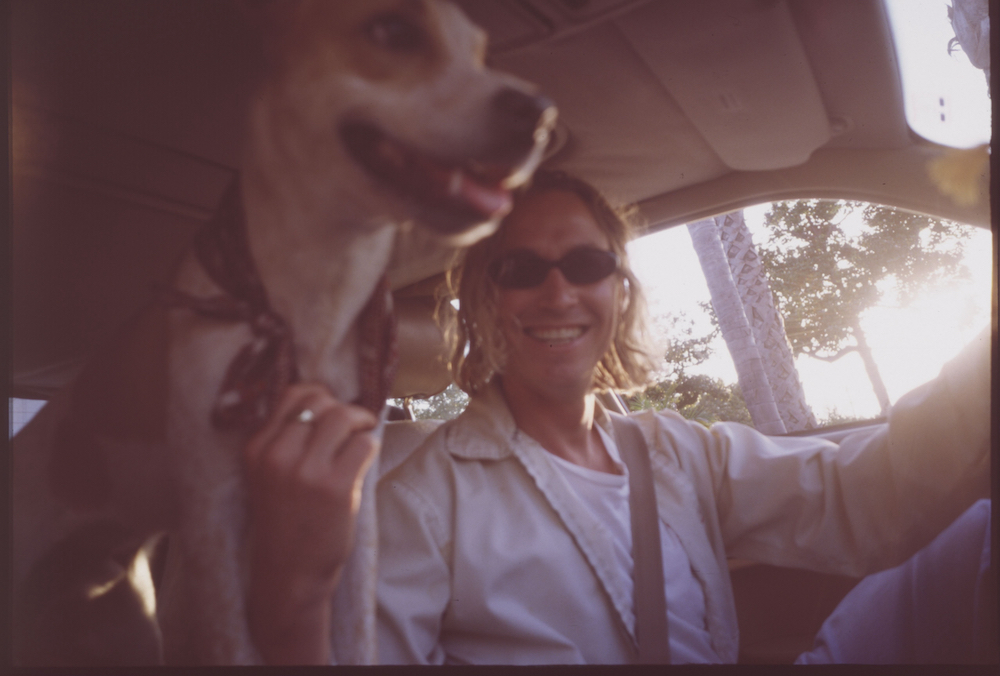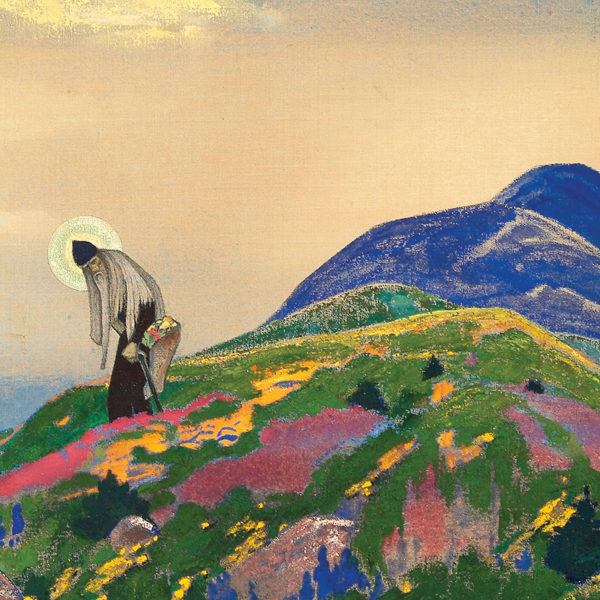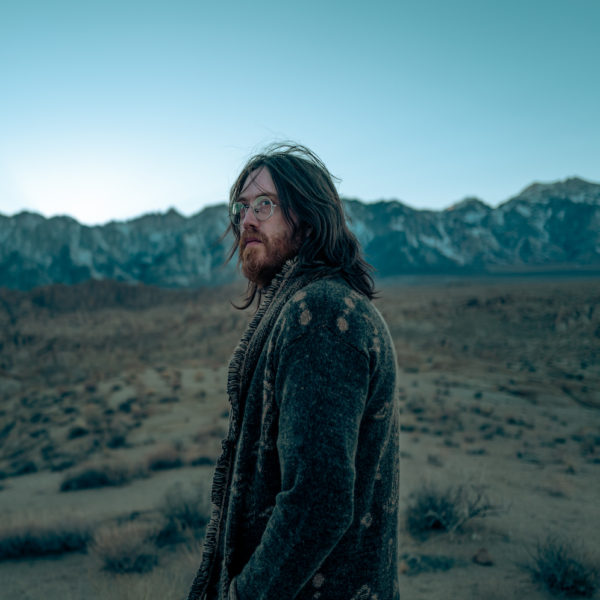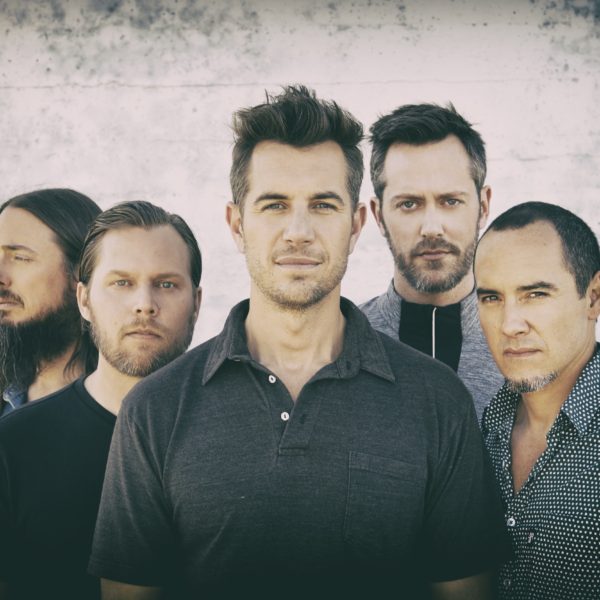
Zooey Celeste
The full-length debut from Zooey Celeste, Restless Thoughts is the real-life manifestation of its creator’s alter ego—an astral shaman responsible for leading the newly departed into the great beyond. After dreaming up the character of Zooey in a feverishly written novel he refers to as “somewhere between Quentin Tarantino and the Bhagavad Gita,” the Southern California-bred musician began working with artist/producer Nick Hakim to conjure a darkly ethereal sound he classifies as astral-pop. Produced by Hakim, the result is both an ideal soundtrack for nocturnal driving and an immediate conduit for lasting transcendence.
Recorded at Hakim’s Brooklyn studio, Restless Thoughts centers on Zooey’s hypnotic baritone vocals, often set against a strangely potent backdrop of sparse drum-machine beats and droney guitar tones (achieved thanks to a serendipitously discovered five-string open-tuning). In bringing the 11-song LP to life, he worked in close collaboration with Hakim (whose production credits also include Lil Yachty and Lianne La Havas), with the two longtime friends handling most of the album’s instrumentation and enlisting guest musicians like Unknown Mortal Orchestra bassist Jake Portrait and drummer Abe Rounds (Andrew Bird, Blake Mills, Devendra Banhart). Mastered by Heba Kadry (Ryuichi Sakamoto, Björk, Julianna Barwick), Restless Thoughts endlessly drifts between avant-punk and chamber-pop and lo-fi psychedelia, quickly drawing the listener into a sustained dream state.
Restless Thoughts takes its title from a song inspired by a particularly dramatic scene in his novel, a metaphysical thriller narrated by the character of Zooey. “It’s a scene where the father of the protagonist has destroyed his marriage and left his daughter behind, and he’s going to meet his mistress and driving in a very suicidal headspace,” he explains. “He gets into a car accident, and two-thirds of the way into the song he’s floating above his body and watching as they’re trying to resuscitate him.” Like many of the album’s songs, the gorgeously chilling track took shape in the throes of the novel-writing process. “I’d write a chapter and pick up my guitar and start writing songs based off the scenes I’d just finished,” says Zooey. “It’s funny because it’s the first time I’ve ever allowed myself to write from the perspective of a character, but it’s also the most authentic thing I’ve ever made in my life.”
On “Big Trouble,” Colombian-Canadian singer/songwriter Tei Shi (aka Valerie Teicher Barbosa) joins Zooey for a sublime piece of surrealist dance-pop that channels a deep longing for psychic liberation. As Zooey reveals, the song emerged through pure unbridled spontaneity. “Nick and Jake were working on a track for another artist and I asked if I could sing on it, and we used what came out in my first take—it was just a crazy burst of raw confidence,” he recalls. “Later on Val came in and heard it, and we ended up singing it together and collaborating on developing the rest of the track. She literally plucked out that what I was singing sounded like the words ‘big trouble,’ and her hook became the thing that tied the whole song together.”
One of the oldest songs on Restless Thoughts, “Cosmic Being” originated from a more fraught moment of improvisation. “My ex and I were in the middle of a fight on a phone call, and I picked up my guitar and wrote that song and sang it to her over the phone,” says Zooey. “It lived as a voice memo for years and then I brought it to Nick, and it became another example of his taking something very small and intimate and giving it this huge amphitheater sound.” Both resplendent and elegantly restrained, “Cosmic Being” also served as a breakthrough in Zooey’s songwriting, striking a rare balance of sincerity and idiosyncratic expression. “That song felt like the beginning of moving toward writing lyrics that are earnest and inspiring but still hit hard,” he says. “I think anyone in the pop world can write a sad song and sell it; I’m more interested in writing something positive in a way that’s completely genuine and feels really good to listen to.”
Naming J.D. Salinger, Iggy Pop, and Tyler, the Creator among his inspirations, Zooey started writing songs at the age of eight after hearing the Beatles for the first time. Along with studying poetry and creative writing, he later took up guitar, piano, and harmonium and played in a series of indie-rock-leaning musical projects that ultimately proved unfulfilling. “We’d finish a show and it would be the best show we’d ever played, and I’d feel physically sick afterward,” he says. “People liking it made me feel bad, which is probably because I knew I wasn’t being my most authentic self.” After a seven-year stint in New York (where he first connected with Hakim), Zooey spent several years in Hawaii and devoted much of his time to surfing—an essential part of his life since early childhood. “I got addicted to surfing bigger waves at Sunset Beach on the North Shore and had a near-death experience where I went through a coral reef, and it changed my life in a lot of ways,” he says. “It took the air out of the wanderlust I’d felt for a long time, and brought me closer to the things I’d been running away from. Because of that, music went from being an escape to a base of reflection where I’m able to really sit with my emotions and process them and be totally honest with myself about what I want from life.”
For Zooey, adopting the unfettered vocal approach he brings to Restless Thoughts also helped catalyze his metamorphosis as an artist. “It’s always felt natural to sing that way, but for a long time I was encouraged to do the fragile-indie-songwriter thing and sing in this whispery tenor,” he says. “Now my singing has opened up so much, and I’ve discovered all these different things I can do with my voice. It’s been so freeing to allow myself to explore that and sing in a way that feels true to who I am. It all goes back to owning myself and owning my feelings and really standing behind them.”
With the release of Restless Thoughts, Zooey hopes to instill the audience with a similarly expanded sense of possibility. “Making this record showed me that if I’m not going beyond what the world has handed me as options, then I’m not being creative,” he says. “I went as far as I could with the process of self-exploration, and I felt fully supported in that—almost like everything was a little bit fated, or we were tapping into something in the ether. I’d love it if that inspired other people to go off and do whatever they feel compelled to do, and let themselves be completely entranced by it.”


